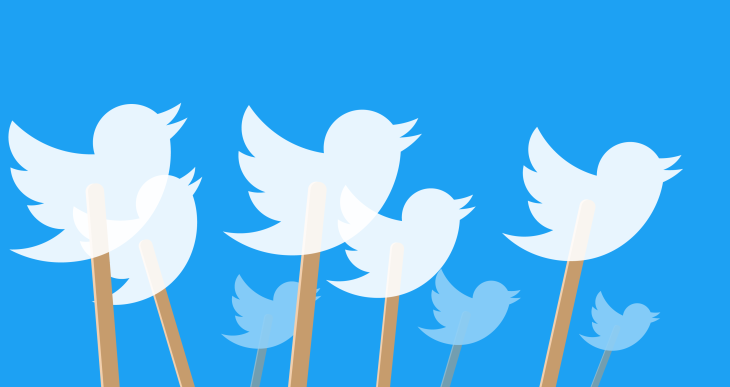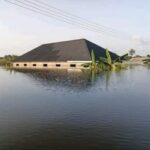Following its ban on Twitter, Nigeria named a heavyweight team to negotiate with the company. Ok, what will be Nigeria’s asks? Demand that Twitter mandatorily opens an office in Nigeria? Twitter does not need to have a physical presence in all countries it operates, as I will address later. Should Team Nigeria also ask Twitter not to censor the Nigerian President? Perhaps this isn’t possible either, as Twitter is a private platform that can implement community standards and implement policies it deems necessary within the framework of human rights. Should Nigeria then ask Twitter for fairness and consistency in applying its community standards? Perhaps and fair enough, but what is the framework?
It is important to establish that Twitter has not been an entirely responsible party. Several civil society groups, including the Digital Africa Research Lab, have documented complaints of Twitter’s inability to adequately uphold its own community standards and invest in content moderation in Nigeria and other parts of the global south. Twitter has maintained an aloofness and a poor understanding of public policy issues in Africa and Nigeria. For a platform of its size and relevance, it engages poorly with African governments and even civil society struggles to access Twitter staff. Compared with Facebook’s imperfect yet spirited efforts to invest in engagement and to develop and explain its tools to empower communities, it appears Twitter must do better. Of course, the company is at liberty to decide where it can establish a physical presence, as it cannot have offices everywhere it operates. However, its staff should be accessible and it must acknowledge its responsibility to the communities it operates in. Twitter must also be seen as neutral and objective.
The framework for content moderation, usually baked into laws, is generally referred to as the “Intermediary Liability” doctrine. An example of this provision can be found in the United States’ s230 of the Communication Decency (CDA), which provides the window that absolves intermediary platforms like Twitter and Facebook from liability from what is published on their platforms. This provision is perhaps the single most potent legislation that has enabled the explosion of the platform economy, more popularly understood as social media. The European Union has a similar framework enshrined in the E – Commerce Directive. A corollary of this doctrine is the “Good Samaritan” requirement, which obliges platform owners to endeavour to rid their platforms of defamatory, illegal, or harmful material in exchange for the immunity under intermediary liability provisions. These twin concepts should guide the development of frameworks to improve the safety of Nigeria’s cyberspace, especially on social media.
Similarly, the “Notice and Take Down” regime has been particularly useful in protecting intellectual property online. Essentially, the “Notice and Take Down” process provides a safe harbour for platforms that may publish infringing material without the knowledge of the platform provider, to take down same, either on the order of courts or when properly notified by a copyright owner of infringement. This process is provided for in the US Digital Millennium Copyright Act (DMCA) and the Electronic Directive in the European Union respectively.
Currently, Nigeria has no such intermediary liability mechanism. The closest to this is a lengthy court process to prove defamation or infringement of copyright. Nigeria must deliberately enshrine a content moderation framework within its laws, providing both immunity to platforms for the content they do publish (as they are essentially marketplaces) and empowering them to moderate content for the benefit of society. The draft Copyrights Bill contains provisions that can achieve this for copyrightable material, but there is still a need for a more robust framework to compel platforms to protect society from online harm. The redrafted Nigerian Electronic Transactions Bill, 2019 currently before the Senate Committee on Banking and Finance may be an appropriate document to anchor these provisions.
There is a simpler solution as a stop-gap measure: the National Information Technology Development Act, 2007 also offers an opportunity to achieve content moderation. The bill was developed and designed as a one-size-fits-all law to enable digital technology development in Nigeria. Through the NITDA Act, Nigeria could rapidly provide frameworks and rules it may need to champion digital content development. A good way to understand the role of the NITDA Act is to contrast the Act with the objectives of the Nigerian Communications Act (NCA) through which the Nigerian Communications Commission (NCC) guides investments into the right communication infrastructure for Nigeria and allocates economic rights associated with communications (spectrum and licenses). However, the task of developing, coordinating, and thinking about what goes through these pipes (content) is NITDA’s responsibility. Section 6 (c) of the NITDA Act 2007 enables the Agency to issue wide-ranging regulations on almost all aspects of Nigeria’s internet life. This implies NITDA can issue regulations on digital content moderation, providing guidance for incidence reporting, cooperation and a minimum of community standards that platforms operating in Nigeria must respect. The government must put into perspective the role of these platforms in facilitating access not only as a tool for political participation but as apertures for vital economic opportunity. Nigeria is currently living through the greatest economic challenge perhaps in her history, considering population growth, unemployment and youth restlessness. These platforms offer young Nigerian’s access to local and international opportunities. This may be the single most important win global platforms such as Google, Facebook and Twitter (yes, Twitter!) provide. Currently, these platforms facilitate unparalleled opportunities for the young urban Nigerian to build skills, generate wealth and secure employment. This then touches on the urgent need for a deliberate National E-Commerce policy that understands the assets at Nigeria’s disposal and then charts a roadmap to ensure we harness what is available and build capacities that enable us to be competitive. Those who advocate that we build local alternatives to these global platforms, citing China as an example, fail to see that it may not be the most useful deployment of scarce resources. We should build what gives us a global advantage and gives our entrepreneurs and professionals the opportunity to be local and global through talents that can build value to attract foreign exchange. This is what real local content development should look like as against the straight-line import substitution approach currently in use but which may frankly offer no real advantages at this time. A point that has been succinctly made several times is that Nigeria’s biggest problem is not imports but rather the capacity to export goods and services of value that can earn good income. We have an income problem.
As for issues around taxation, Significant Economic Presence (SEP) and other revenue-generating ideas being bandied these days, some of which have become laws, I urge the government to hold its horses. We need to be strategic in deciding what to do with tech, global platforms in Nigeria and the development of talents. It is not wise for the government to simply tax anything that makes news headlines. Why aren’t we taxing agriculture if it is the second-largest component of Nigeria’s GDP? Economic size or activity hardly equates with national income or revenue source. There are other multiples tech provides that we must prioritise such as skill development and investments. We cannot discuss tech and the Internet as if we are the US, France or even China. Some humility is required. We need to make the “gun powder’ of tech work for us as a society- then we can tax it. There’s a long way to go.
Kasim Sodangi contributed this piece from Brighton, United Kingdom

 Join Daily Trust WhatsApp Community For Quick Access To News and Happenings Around You.
Join Daily Trust WhatsApp Community For Quick Access To News and Happenings Around You.

